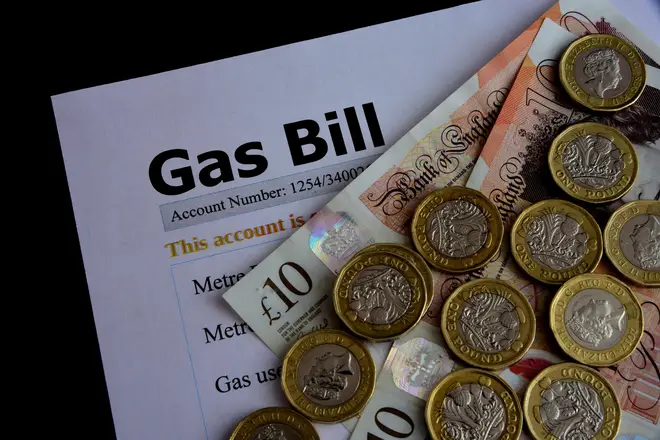
Nick Ferrari 7am - 10am
18 January 2022, 00:31 | Updated: 21 January 2022, 00:09

The poorest adults could be forced to spend more than half of their income after housing on rising energy bills which could "devastate" the poorest families, analysis suggests.
Research from the Joseph Rowntree Foundation (JRF) found that single-adult households could need to spend up to 54 per cent of their income after housing costs on energy bills after April.
"Rising energy prices will affect us all, but our analysis shows they have the potential to devastate the budgets of families on the lowest incomes," said Katie Schmuecker, JRF deputy director of policy and partnerships.
"The Government cannot stand by and allow the rising cost of living to knock people off their feet."
Read more: Four day working week pilot scheme launched by 30 companies
Read more: Labour demands answers to five key questions in Govt partygate scandal
The report found single-person households would be the hardest hit.
Second in line are single parents and couples without children, who face spending a quarter of their income after housing on energy bills.
Low-income families could spend on average 18% of their income after housing costs on energy bills after April
In comparison, middle-income households are expected to spend on average 6 per cent of their incomes on energy bills, the analysis shows.

Rachel Reeves hits out at lack of action on energy
The analysis is based on the assumption that the energy price cap will rise by just under 50% from April.
The JRF released the figures alongside its annual UK Poverty report, which it said shows a "worrying increase" in the number of children living in the deepest poverty.
Some 31 per cent of children were living in poverty in 2019-20, rising to nearly half of children in single-parent families.
Around 1.8 million children were growing up in very deep poverty - an increase of half a million children since 2011-12.
Read more: Hostage in Texas synagogue stand-off 'threw chair at captor' to escape
Read more: Partygate scandal: Dominic Cummings claims PM lied to Parliament
The JRF said there seems "little prospect" of reversing the recent rising child poverty trends, and also rising pensioner poverty.
Overall, 14.5 million people in the UK were found to be living in poverty in 2019-20 - 22 per cent of the population.
The report found wide variations across society, with people from Bangladeshi, Pakistani and black families likely to continue to have higher poverty rates and worse outcomes across many areas.
Other groups with higher poverty rates include lone parents, disabled people, and unpaid carers.
The JRF said poorer households will have less of a buffer against rising costs or unexpected expenses as they are less likely to have savings.
It is calling for the Government to help the poorest households with targeted emergency payments, and to strengthen the "woefully inadequate" social security system which is causing "avoidable hardship".

'Everyone has to take a bit of the pain' in energy price rises
"No childhood should be defined by a daily struggle to afford the basics," said Ms Schmuecker.
"But the reality is that many children growing up today won't have known anything else.
"The fact that more children are in poverty and sinking deeper into poverty should shame us all."
Action for Children said poorer families with children will be hardest hit by cost-of-living rises as they face bigger bills, have smaller savings and are less able to take on extra work.
Director of policy and campaigns Imran Hussain said: "It's been clear from our services for many years that more and more families have been falling into deep poverty.
"The Government has been in denial about high and rising child poverty and simply doesn't have a strategy to tackle it."
Read more: Britain needs to be braced for more Chinese-style spy scandals, Priti Patel warns
Read more: Nadine Dorries confirms BBC licence fee will be frozen for next two years
A Government spokesman said: "We recognise the pressures people are facing on their household bills, which is why we have taken decisive steps to support them.
"The energy price cap has been protecting around 15 million households from high global gas prices. We are also supporting vulnerable and low-income households with the cost of fuel bills through schemes such as the Warm Home Discount and our £500 million Household Support Fund.
"Working families on Universal Credit are already seeing more money in their pockets, with an average of £1,000 more a year, and we're increasing the living wage again in April.
"We will continue to look closely at the pressures facing people and what further measures might be needed on abating high energy costs."